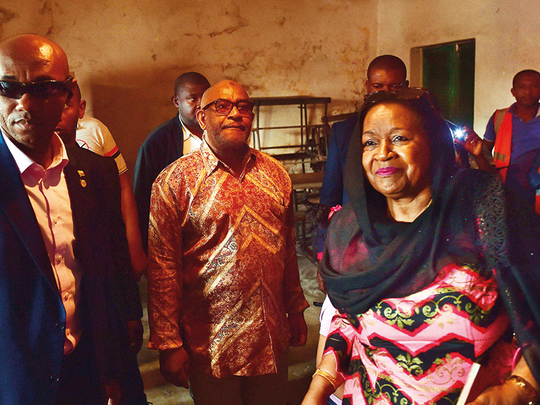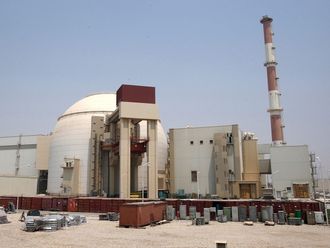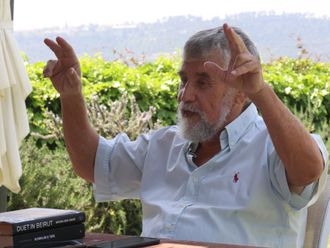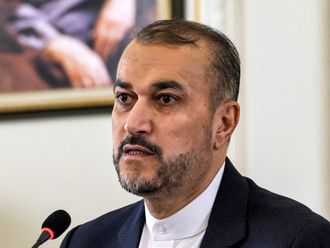
Moroni, Comoros: Voters in the Comoros went to the polls on Monday in a politically explosive referendum that could change the constitution and allow President Azali Assoumani to rule beyond 2021, his current term limit.
Voters were scarce at several polling stations in the capital Moroni as the day began, AFP reporters witnessed.
Burdened by a long history of turbulence, the Indian Ocean archipelago risks renewed unrest after Assoumani banned demonstrations and the opposition vowed to fiercely resist the proposed changes.
Opposition lawmakers had demanded an “unconditional halt without delay to the arbitrary and illegal process” of the referendum, which they said they would boycott.
Ahmad Al Barwane, secretary general of the opposition Juwa party, accused the president of wanting to “craft a constitution which is tailor-made for him to do as he pleases”.
But Interior Minister Mohammad Daoudou had dismissed the opposition’s concerns, saying the referendum would go ahead with about 300,000 registered voters.
Under the current constitution adopted in 2001, power rotates every five years between the three main islands as a means of balancing power in the coup-prone country.
If the government wins the referendum, this arrangement would be scrapped and replaced by a president who would be elected for a five-year tenure, renewable for one term.
Assoumani would also gain the power to scrap the country’s three vice-presidencies, another checks-and-balances feature of the present constitution.
In addition, a constitutional clause on secularism would be scrapped and replaced by a text saying “Islam is the religion of state” and “the state draws from this religion the principles and rules of Sunnite observance”.
Ninety-nine per cent of the Comoran population are Sunni Muslim.
In June, one of the vice-presidents, Ahmad Said Jaffar, urged Comorans to “reject the dangerous abuse” of power. He was later stripped of all but one of his ministerial portfolios.
If Assoumani wins the referendum, he is expected to stage early elections next year to try to extend his time in office. If he loses, he will step down, according to his spokesman, Mohammad Ismailla.
A group of three islands between Mozambique and Madagascar and one of the world’s poorest countries, the Comoros has endured repeated coups and political turmoil, including intervention by mercenaries, ever since it gained independence from France in 1975.
Assoumani, a 59-year-old former colonel, was president between 1999 and 2002, coming to power after ousting acting president Tadjidine Bin Saeed Massonde in a military coup.
He won the country’s first multi-party elections in 2002, stepping down in 2006 to hand over power democratically to Ahmad Abdullah Sambi.
In May 2016, he returned again as president after an election marred by violence and allegations of voting irregularities.
In April this year, Assoumani suspended the Constitutional Court saying it was incompetent.
The following month, former president Sambi — reputed to be close to Iran — was placed under house arrest, and Assoumani outlawed demonstrations.
Earlier this month, one of the vice presidents, Moustoidrane Abdou escaped an assassination attempt.
He was travelling to his home village in the west of Anjouan island when assailants on a motorcycle raked his car with automatic gunfire near the island’s biggest town of Mutsamudu.
The three main islands of the Comoros — Grande-Comore, the largest, and from which Azali hails, Anjouan and Moheli — have a population of around 800,000 people. A fourth island in the group, Mayotte, remains part of France.
The referendum results are expected Monday night or Tuesday.












